NEWS

Top 30 LGR Official UK Airplay Chart.
June 2nd to June 29th inclusive.
London Greek Radio Official UK Airplay Chart, with some of the biggest, most in demand hits in the chart.
The rankings are based on radio airplay detection as measured by the “Radio Monitor” of UK-wide popular stations.
1 Petros Iakovidis – S’ Agapo Sou Fonaxa
2 Konstantinos Christoforou Feat. One – Billy Bam Bam
3 Ilias Vrettos – Mono Ego
4 Konstantinos Argiros – Athina Mou
5 Nikos Vertis Feat. Amir – I Lexi S’ Agapo
6 Panos Kiamos – Tha Perasi
7 Christina Salti Feat. Ilias Vrettos – Taxidi Magiko
8 Giorgos Papadopoulos – Agapi Mou
9 Natassa Theodoridou – Paradothika Se ‘ena
10 Kostas Karafotis – Afiste Me Oloi Stin Trela Mou
11 Giorgos Mazonakis – Oinopnevma Ftino
12 Alcatrash – Xana
13 Michalis Xatzigiannis – Vale Ena Kafe
14 Stelios Rokkos – Makari
15 Konstantinos Koufos – Parasyromai
16 Kaiti Garbi – Ilios De Vgainei An Den Peis Kalimera
17 Nikos Oikonomopoulos – Skase Ena Fili
18 Konstantinos Galanos – Gia Mia Matia
19 Nikos Kourkoulis – Eline Kai Edene
20 Christos Menidiatis – Dyo Dromoi
21 Nikos Oikonomopoulos – Valto Terma
22 Elli Kokkinou – Taxe Mou
23 Stan – Den Ftais Esy
24 Kaiti Garbi Feat. Antonis Remos – Kivotos
25 Josephine – Magia
26 Kostas Doxas – Diva
27 Panos Kiamos – Fotia Me Fotia
28 Mihalis Xatzigiannis Feat. Thanasis Alevras – Saitias
29 Petros Iakovidis – Fovamai
30 Christos Mastoras – Den Echo Idea
Information and statistics credited to “Radio Monitor”.
Source: London Greek Radio Official UK Airplay Chart.
Top 20 Greek Hits here: lgr.co.uk/chart/ and hear a few snippets, to some of our favourite songs.
Article written by
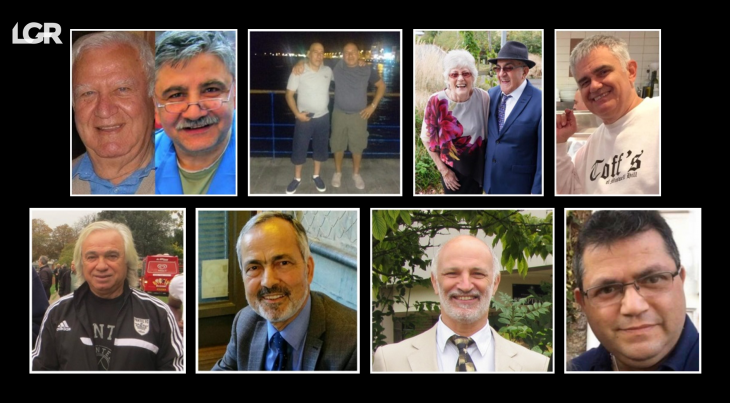
Since the outbreak, it is understood that an estimated 313 Cypriots have died from Coronavirus, amounting to just under 1% of the total 43,550 fatalities in Britain as of Sunday 28th June 2020.
We have seen three recorded deaths for the month of June, as the UK continues to see a reduction of deaths.
Cypriots represent approximately half a percent of the population and whilst the community’s losses are high, they do not seem to be as much as was first thought at the onset of the pandemic.
One explanation for this could be that a majority of the Cypriot community live in London and the capital was hit earlier.
The weekly Cypriot newspaper ‘Parikiaki’ compiled the numbers, however it is not known whether the deceased died directly from Coronavirus or whether they had tested positive for the virus, but died of other causes.
The newspaper contacted hospitals, churches, funeral directors, Turkish Cypriot media and community members to ascertain numbers. This also included requests for their weekly death publications.
The ‘Eleftheria’ newspaper had estimated 109 deaths in May, based on information from Greek Orthodox Church funeral arrangements.
Some of those who sadly passed away to the virus include:
A Turkish-Cypriot father and son who died just days apart, Ahmet Kamil, 63, died on 1st April, followed by his father, Kamil Ahmet, 87, who passed away a week later. Kamil Ahmet co-founded the ‘Hackney Cypriot Association’ about 40 years ago to promote Cypriot cohesion within the London borough. The decades-run family business was a cobblers shoe repair store in Newington Green.
London-Cypriot brothers Andy and Lonny Leonida aged 57 and 55 respectively lost their battle on 18th and 22nd April, after being admitted to Middlesex Hospital the week before.
Husband and wife, Pavlos Faccas, 77, of Ayios Dometios, Nicosia, and Anita, 81 from East London died within three days of each other on 3rd April at Great Yarmouth Hospital.
George Nicholas Georgiou, 62, the co-owner of ‘Toffs Fish and Chips’ in Muswell Hill, passed away on 21st April. In November 1999, George and his brother Costas bought the well-established ‘Toffs of Muswell Hill’. Tributes after his death included a Tweet from local MP Christina West, which read: “Muswell Hill will never be the same”.
Petros Michael, 72, born in the village of Ayios Amvrosios, Kyrenia, died on 31st March. He was a pillar of UK-Cypriot football, a founder of the KOPA League and published the community’s football magazine. Petros was also known to broadcast on LGR for several years.
Theo Papapavlou, 72, born in Panayia, Paphos passed away on 3rd April. He was a treasurer of ‘EDEK UK’ and a member of the Secretariat of the ‘National Federation of Cypriots in the UK’. He was also President of the “UK Association of Resistance Fighters”.
Yiannis Pareas, 70, an architect, also succumbed to the virus. He was the Chair of Governors for “St Andrew The Apostle Greek Orthodox Secondary School” in Barnet. He co-founded the school ten years ago. The father-of-three died at the National Hospital for Neurology and Neurosurgery in Holborn, on 20th April.
Zacharias Akis Kadis, 56, a London-Cypriot, who worked and owned ‘Cobblers Corner’ in Palmers Green for 22 years, and for the last three years volunteered and worked at Cancer Research UK, also died from Coronavirus.
London Greek Radio (LGR) expresses our sincere condolences to all families and friends of all those who have sadly died during the pandemic. We will continue to work with various organisations to help and support our communities at this challenging time.
[Information credited and attributed to Parikiaki newspaper.]
Article written by London Greek Radio
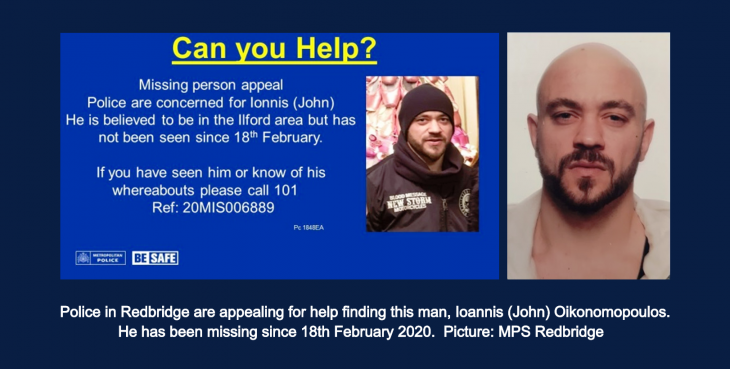
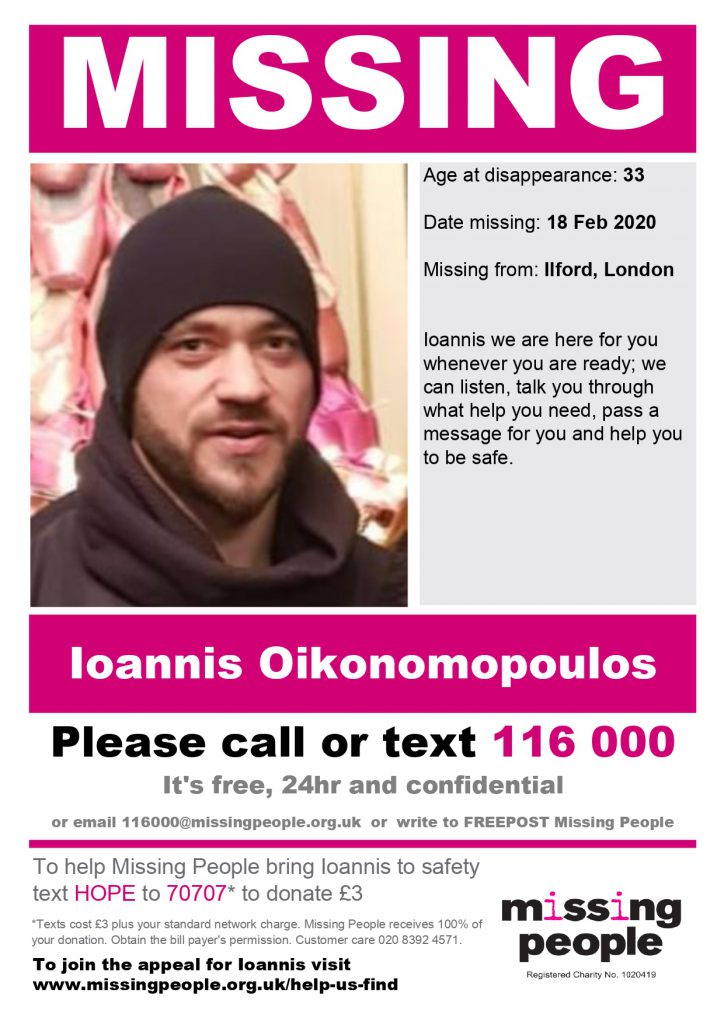
Police are appealing for the public’s help after a Greek man went missing from Ilford.
Article written by London Greek Radio

Police in Redbridge are appealing for help to find a man of Greek descent, who has been missing from the Ilford area and not seen since 18th February 2020.
Ioannis Oikonomopoulos is now 34 years old and originally from Patras in Western Greece. He was aged 33 at the time of his disappearance earlier this year.
Ioannis (John), a former beach lifeguard in Greece, has been living in London since last year and on Tuesday 18th February, his partner returned home from work and found the door to their apartment open with Ioannis missing.
They lived together at Eastern Avenue East, on the A12 at the junction with Silverdale Avenue.
Ioannis is about 5′ 9″ tall and at the time of his disappearance, he was wearing black sweatpants, a single white trainer on his right foot, a black jacket and a blue hat.
His girlfriend, along with his parents who live in Greece’s Achaia area are hoping that people living in London will be able to help locate Ioannou. It is believed that he may have some health problems.
Police have managed to trace some CCTV footage of Ioannis when he is seen on Tuesday 18th February 2020 just after 2 o’clock in the afternoon.
When he went missing, he only had his house keys and a bank card with him. The bank card has not been used and there is no other trace of him after this day.
In the CCTV clip Ioannis is seen without a shoe on his left foot. It is unknown why this is the case.
PC Mark Denham from the Missing Person’s Unit in East London, told LGR, “It seems very out-of-character for Ioannis to go missing like this, and for such a long period of time.
“If anyone recalls seeing a man matching Ioannis’ description with only one trainer on, or perhaps you saw a single white trainer lying around somewhere, please contact us straight away.
PC Denham added, “On the day that he went missing, we can see on the CCTV that Ioannis is walking east towards King George’s Hospital but have not had any trace of him at all since then.”
Anyone who has any information at all, however small, is asked to call officers on 101 or you can call and text free anytime to the UK’s ‘Missing People’ charity in confidence via 116 000.
Article written by London Greek Radio

Top 20 LGR Chart Hits.
Tune in to LGR 103.3 FM and lgr.co.uk to hear the best new music, and lots of your top-rated favourite songs this month.
London Greek Radio play-lists are constantly adding even more exclusives, promos and new releases.
7th June 2020.
Listen to snippets from our chart: lgr.co.uk/chart/
1. Nikos Vertis feat. Amir – I Leksi S’Agapo/Si On N’aime Qu’une Fois
2. Melisses – Misi Kardia
3. Giorgos Sabanis – Allakse Ta Ola
4. Giorgos Mazonakis – Dianyktereuo
5. Dionisis Sxoinas – Allazo
6. Dimitris Basis feat. Christos Mastoras – Ena Lepto
7. Elena Paparizou feat. Sakis Rouvas – Etsi Einai I Fasi
8. Nikos Oikonomopoulos – Kathimerina
9. Natasa Theodoridou – Hartopolemos
10. Konstantinos Argiros – Ta Matia Sou Eroteutika
11. Petros Iakovidis – S’agapo Sou Fonaksa
12. Constantinos Christoforou feat. One – Billy Bam Bam
13. Nikiforos – Ta Leme To Vrady
14. Antonis Remos – Ola Ta Dakrya
15. Michalis Xatzigiannis – Vale Ena Kafe
16. Kaiti Garbi – Kormia Xamena
17. Ilias Vrettos – Ora Monaksias
18. Lena Zeugara – Oneira
19. Tamta – S’agapo
20. Thodoris Ferris – Ta Amartola Sou Matia
“Celebrating Greek music and creativity on the air-waves”
Article written by London Greek Radio
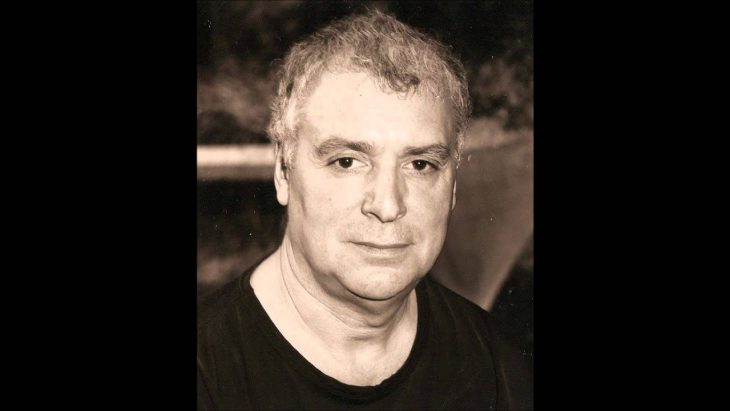
English-Greek actor Michael Angelis died on Saturday, 30th May in Berkshire. He was 76 years old.
Michael was the narrator of the classic children’s series, ‘Thomas The Tank Engine’ from 1991 to 2012 and had a lengthy television career, which included the powerful 1980s drama ‘Boys from the Blackstuff’.
The actor was born Nicolas Michael Angelis on 29th April 1944 in London to Margaret (née McCulla), and Greek father, Evangelos Angelis. He was raised in Dingle, Liverpool.
He trained at the Royal Scottish Academy of Music and Drama in Glasgow, where he played roles in several pieces of work, including Brendan Behan’s ‘The Hostage’ and ‘The Zykovs’ by Maxim Gorky.
Angelis also appeared in comedies such as ‘The Liver Birds’ between 1975 and 1978 and Luv 1993–94, as well as films such as ‘A Nightingale Sang in Berkeley Square’ (1979) and ‘No Surrender’ (1985).
In 1983, he appeared at the Royal Exchange in Manchester in Harold Pinter’s ‘The Caretaker’ and played a villain in the revived television series ‘Auf Wiedersehen, Pet’ in 2002.
The much-loved actor narrated John Peel’s autobiography, ‘Margrave of the Marshes’ and in 2006 he starred in the film ‘Fated’.
Angelis also appeared in episodes of ‘Midsomer Murders’ and ‘The Bill’.
He was married to Coronation Street actress Helen Worth in 1991 and after their divorce in 2001, he married Welsh model Jennifer Khalastchi, in 2003.
He was the younger brother of fellow actor Paul Angelis who died in 2009.
LGR express their condolences to Michael’s family and friends.
Article written by London Greek Radio
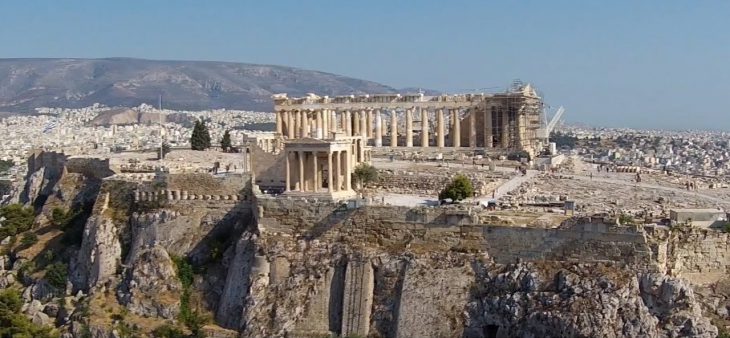
The Greek Tourism Ministry has announced that, as of June 15th, people from 29 countries will be allowed to enter Greece on direct flights to Athens and to the northern city of Thessaloniki.
The list of those eligible to enter the country will be expanded on July 1st, but as of yet does not include the UK.
The 29 countries currently include: Albania, Australia, Austria, Bulgaria, China, Croatia, Cyprus, Czech Republic, Denmark, Estonia, Finland, Germany, Hungary, Israel, Japan, Latvia, Lebanon, Lithuania, Malta, Montenegro, New Zealand, North Macedonia, Norway, Romania, Serbia, Slovakia, Slovenia, South Korea, and Switzerland.
Greece has so far had far fewer cases of coronavirus than the UK, with 2,906 confirmed cases and 175 deaths. The Greek islands, which rely heavily on tourism, have had no confirmed cases.
Roughly 33 million visitors brought in about $21 billion to Greece in 2019.
Article written by London Greek Radio
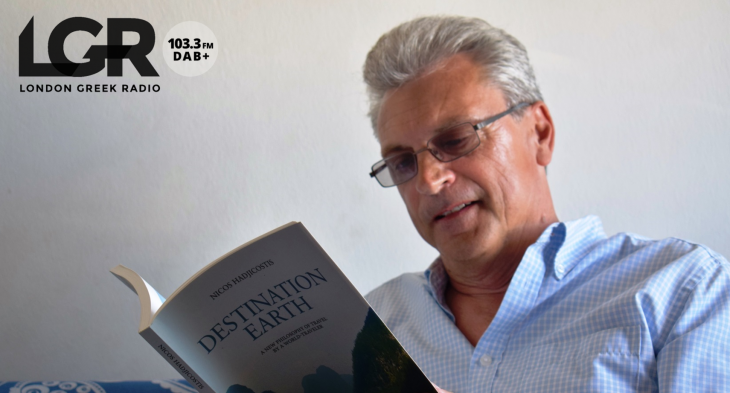
LGR’s reporter Michael Janes gives us a very personal view of ‘lockdown’.
We moved to Harrogate from London in September 2019.
Much since has changed in the world around us; the whole experience, worthy of reflection in normal times, has been eclipsed by the effects of a global pandemic.
My daughter graduated from The Northern Film School in Leeds and she fell in love with a Yorkshireman. They were married in Roundhay Park four years ago and live in a suburb of Leeds.
As we were already semi-retired my wife and I “upped sticks” for God’s Own Country to be near her. In a cruel twist of fate, because of lockdown, we are still separated.
At the time, we encountered few doubters. “Are you crazy?”, our friends remonstrated. The old cultural divide between the north and south resurrected. The reaction reminded me of the perception explored in the BBC television series and subsequent book ‘It’s Grim Up North’.
By intimation, those in the north complained of having fewer cultural opportunities; the book also provided a view of southern life as faceless and bland.
Is there any truth to this stereotype?
The Capital does offer a whole range of options not available elsewhere in the UK but remains overwhelmed by a blistering pace that is insatiable for some, and uncomfortable for others, often visitors. Londoners can be cold, even distant.
Dr Johnson’s much quoted, “When a man is tired of London, he is tired of life” is extreme. In reality, the whole scene in London can be exciting, but there comes a time in life when this ceases to be a priority.
On the other hand, in Yorkshire, common courtesy is observed as a natural way of life.
Strangers speak to you in the street without expecting a hand out. However, I have yet to come across a Yorkshireman who breeds whippets. There still exists a naïve ignorance regarding accents / colloquialisms. Most Londoners do not speak like Danny Dyer nor do they sound like Prince Charles.
Furthermore, it is rare to hear “eey by gum”, certainly not in Harrogate.
Similarly, the infamous Yorkshire frugality seems exaggerated. Actually, the opposite seems to be true or maybe I have encountered a generous circle.
Our property search led us to Harrogate.
We were looking for a location with a similar profile to Crouch End in North London; fairly central, full of bars / restaurants, interesting local shops but unpretentiously Avant-Garde. The area around Cold Bath Road known affectionately as “The Notting Hill of the North” ticked most boxes.
Early on, we discovered walks across The Stray and Valley Gardens. Both can be spectacular, particularly in cherry blossom season, certainly on a par with Kenwood or Hampstead.
Multi culturalism so prevalent in London is only a visible in pockets in the North. In some respects, I miss the cultural diversity which makes London intoxicating and, at times, on the edge, although not without its problems. More than twenty years ago, in the school my daughter attended, numerous different languages were spoken including Greek and Turkish. Her class mate taught her to count to ten in Arabic at the age of 11.
Another discernible difference is air quality – with Harrogate coming out on top by a mile. Wherever you are in London, air quality is compromised, although it always felt fresh at the top of the hill at Alexander Palace; with fewer cars now on the road, this should now improve.
The constant sound of sirens is part of the London way of life. I had not heard any in Harrogate until this crisis erupted. Now, sadly it’s every day.
There is still a north-south divide when it comes to property prices.
Harrogate is regarded on the pricey side but not by London standards. Although London prices fell post-Brexit with a more permanent correction pending, the huge discrepancy is unwarranted. As downsizing goes, exchanging a two-bedroom apartment for a detached house still seems surreal.
Harrogate is much subdued due to lockdown, which for us has prolonged the adjustment process. Every day now reminds me of Sundays before the trading laws changed were changed in 1994.
Friends tell me they have seen dramatic change in London. Apparently, the once special cosmopolitan ambience has all but evaporated. Camden Market is deserted. According to reports, Trafalgar Square, normally buzzing at night is a sad spectacle; clusters of homeless people wait on the steps of The National Gallery for food to be delivered.
Whatever they may tell us, in my personal opinion, I suspect things will never be the same again. On a positive note maybe the new normal will be an improvement on before? In the meantime, notwithstanding DIY projects, we are keeping busy. I still do some news reports by phone for LGR and Michelle has her painting. We are pleased we made the move but our hearts remain in North London. Looking forward to a better future.
Michael Janes.
Freelance Reporter, LGR.
Article written by Michael Janes
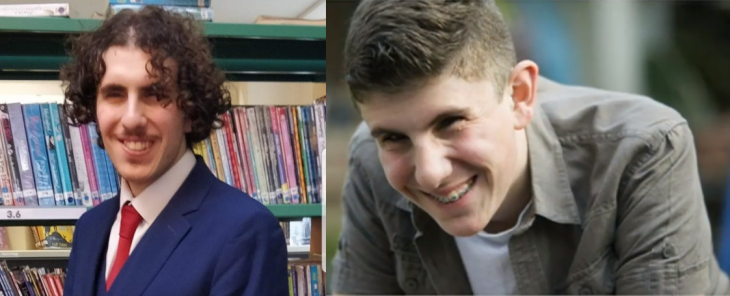
A 19-year-old London-Cypriot is one of eight winners in a national awards scheme run by Rotary.
The Rotary Young Citizen Awards celebrate the amazing achievements of inspirational young people, under the age of 25, across Great Britain and Ireland, many of whom have assumed important responsibilities at a very young age.
Theo Sergiou from Edmonton, North London, is one of the winners after being nominated by Rotary Enfield Chase.
Aged just two-and-a-half months, Theo was diagnosed with bilateral Retinoblastoma (cancer in both my eyes) and after treatment, doctors regained some of his sight. However, aged four, he was diagnosed with cancer again, this time the tumour had grown so big, his parents had been told he had only a few days to live, the cancer was terminal. With treatment though, the tumours stopped growing. Theo says: “I still am partially blind and in fear knowing that the cancer could come out of remission one day and kill me, but I survived.”
“Even though I encounter daily barriers being visually impaired, I am adamant not to let this affect my everyday life and will go over and beyond to do any aspiration I set for myself and inspire others.”
His ongoing medical condition and regular hospital admissions haven’t stopped him from doing so much for others. He’s the London representative on the UK’s Youth Parliament and is passionate about reducing knife crime. He was recruited to the Youth Advisory Forum, the first ever youth civil service body and Theo is the youngest person in British history to contribute to a No. 10 Cabinet meeting.
As an inpatient at BARTS hospital in 2014, he realised how little say young people have in their own care and became the co-founder of BARTS YES FORUM – Youth Empowerment Squad which now stretches across the BARTS Trust, set up to help improve the experience of young patients.
During the Coronavirus Pandemic, he is giving peer support across the 5 BARTS hospital sites in London to those aged from 11 to 19 who are concerned about being in hospital or don’t want to go to hospital appointments and are worried about their survival.
Theo said: “As my motto goes, I don’t need a reason to do things, I need a reason not to. I hope this Award inspires other people to try the same outlook. With the recent outbreak of Covid-19, I draw even closer to these principles, knowing how precious life truly is. This Award has allowed me to reflect over my life experiences and have hope that growth behind barriers is always possible; never before has this message been so importance to us all”.
He is also supporting kids in education writing an open letter to the Prime Minister about the lack of provision during Lockdown for youngsters with special educational needs who, he says, are suffering mental health problems and not getting an education and also those who are being marginalised because they are digitally disadvantaged due to lack of access to modern technology.
Theo is a lay member of NICE on their Complex Needs and Disability Committee producing guidelines for key-workers and is the first young person on this committee. He is on the NHS England Youth Forum, representing the views of local young people on a national platform and Youth Representative for Health Education England on their Patient Advisory Forum.
Article written by London Greek Radio, Rotary Club of Enfield Chase
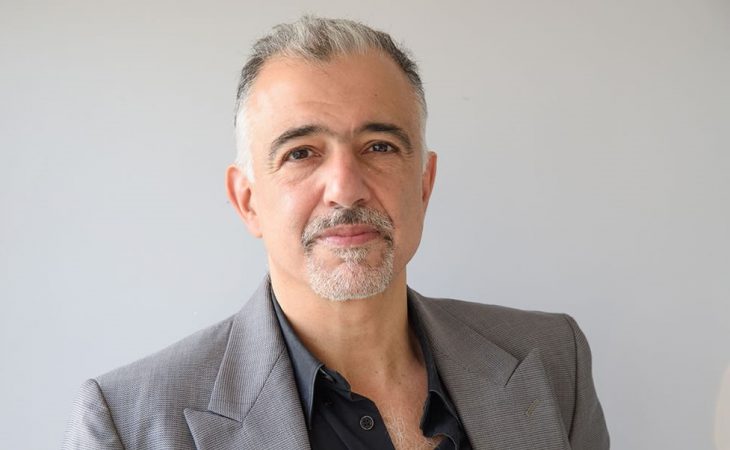
UK Cypriot Professor Chris Toumazou is behind a one-hour COVID-19 test that doesn’t require a laboratory and is being rolled out across London hospitals.
The DnaNudge test does not require any medical expertise and can detect the virus from just a nostril sample – much less invasive than some throat swabs.
After successful trials on 500 patients in London hospitals, the ‘lab in a cartridge’ device was approved for clinical use by the Medicines and Healthcare Products Regulatory Agency (MHRA) at the end of April.
Professor Chris Toumazou, chief executive and co-founder of DnaNudge is based at Imperial College London. He was born in Cheltenham the son of Marcos and Andrianna from the villages of Neta and Yialoussa in Cyprus according to Parikiaki newspaper, respectively.
As Britain tries to ramp up testing to help revive the stalled economy, it is still mainly using laboratory tests that take around 48 hours to produce a result and either require people to travel often long distances to regional testing centers or receive by post at home.
Faster testing could allow more people to go back to work or permit testing on a more regular basis and could help Prime Minister Boris Johnson achieve his target of 200,000 tests a day, an important element in successfully ending the lockdown.
The new test, based on the design of a DNA test developed by a professor at Imperial College London, received approval for clinical use by the Medicines and Healthcare Products Regulatory Agency (MHRA) at the end of April after successful trials.
With a sensitivity of over 98% and specificity of 100%, the DnaNudge test is being rolled out in cancer wards, accident and emergency, and maternity departments, as a prelude to possible wider application.
The health ministry said it was a pilot scheme and that other lab-based tests were also being run in order to look at the benefits and capabilities of each test. Britain’s National Health Service is also using other point-of-care machines to test for the virus.
Britain made an initial order of 10,000 DnaNudge cartridges in March and has procured another 70,000 since. The price of the disposable cartridge tests is around 40 pounds ($49).
“It is a lab in a cartridge effectively,” said Chris Toumazou, a professor of engineering at Imperial College who developed the test. “The key is that with this test you go straight from a saliva swap or a nasal swab into the cartridge with no transport and no laboratory.”
“You can even look at such small fragments of the RNA (Ribonucleic acid) that you can check whether a patient is coming out of it or going into COVID,” Toumazou said.
The test, which requires one nostril swab, is being rolled out at the Chelsea and Westminster Hospital, West Middlesex University Hospital, St Mary’s, and at Queen Charlotte’s and Chelsea Hospital.
“This test does work and is actually more sensitive than some of the lab tests,” Dr Gary Davies, hospital medical director at the Chelsea and Westminster, told Reuters. He said the test was being used for patients coming into hospital to help decide on which ward to place them.
Article written by London Greek Radio


